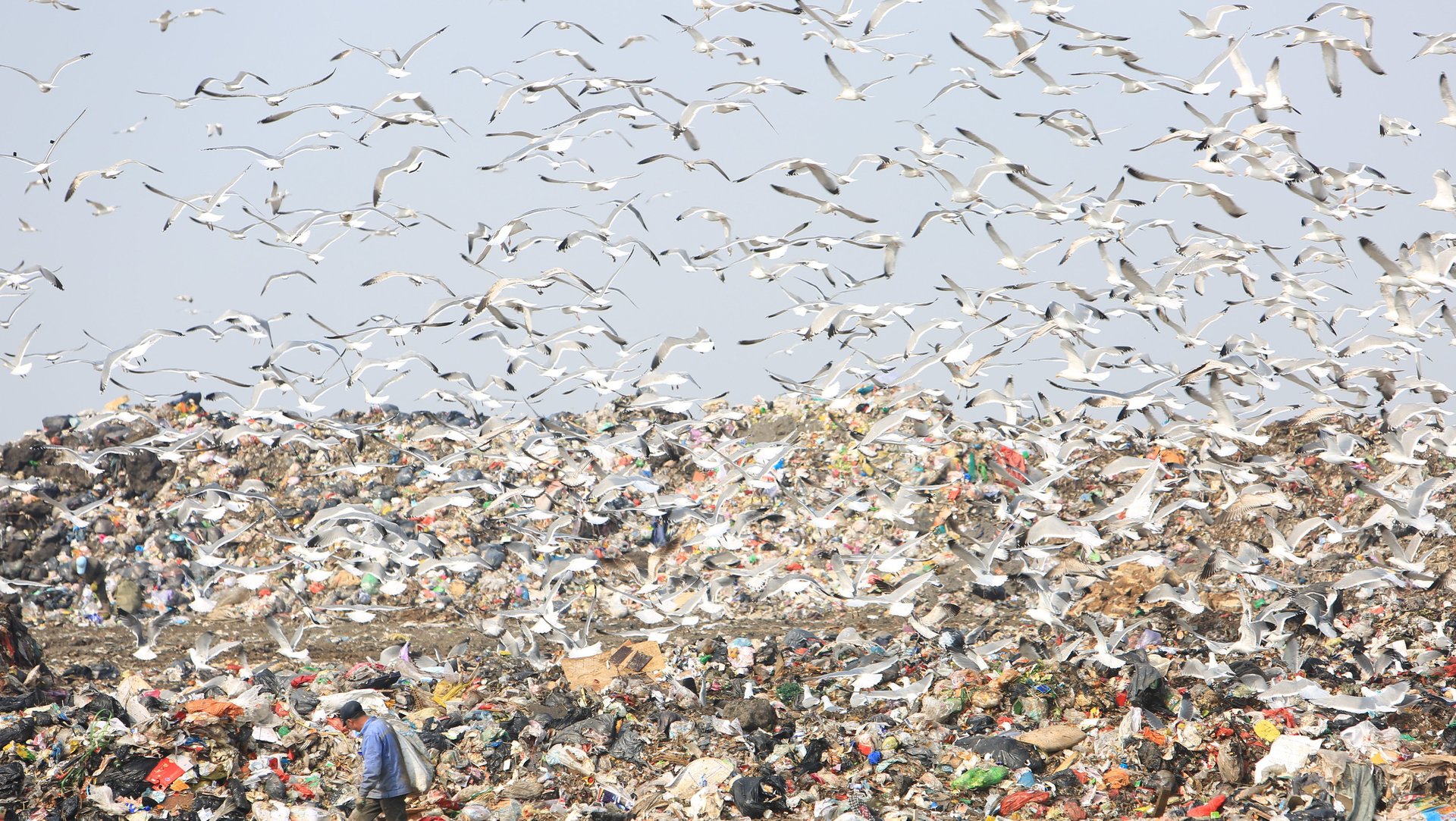“What kind of rubbish are you?”: China’s first serious trash-sorting rule is driving Shanghai crazy
Shanghai’s residents are reeling from the mandatory trash-sorting rules their city just adopted as China works toward beefing up its recycling rates.


Shanghai’s residents are reeling from the mandatory trash-sorting rules their city just adopted as China works toward beefing up its recycling rates.
Starting Monday (July 1), individuals and businesses in China’s financial capital who fail to separate trash correctly face fines and even a lower social credit rating (link in Chinese) that could make it hard to get a bank loan. The city disposes of more than nine million metric tons (10 million tons) of trash annually.
China is trying to improve its recycling rates, learning from its neighbor Japan, which has a sophisticated sorting system. Although China has no shortage of recycling bins in some of its most trash-generating cities, China’s overall recycling rate is lower than the 58% Taiwan has achieved, South Korea’s 54%, and even the 35% rate in the US, which China wants 46 cities to match by 2020. China currently recycles under 20% (link in Chinese) of its waste, according to a journal affiliated with the environment ministry.
President Xi Jinping even spoke of the importance of sorting garbage in a speech last month. China’s zeal for recycling comes as the country upended global recycling habits (paywall) last year, by banning many categories of foreign trash imports.
But local residents are struggling with the new rules. Waste is supposed to be divided into four types: recyclable goods such as cans and bottles, harmful waste like drugs and cosmetics, kitchen waste, and other waste. Companies violating the sorting rule will face fines from 50,000 to half a million yuan ($7000 to $70,000), while individuals face fines of $7 to $30. The city also refers to other waste as “dry waste,” and kitchen waste as “wet waste,” which further complicates (link in Chinese) the sorting system to many minds.
On social media platform Weibo, a collection of posts (link in Chinese) under the topic #你是个什么垃圾#, which can be translated into both “what’s your rubbish” and “what kind of rubbish are you,” have generated nearly 20 million views as of today (July 5). People find it counterintuitive that corn should go into “other waste” instead of kitchen waste because it doesn’t decompose (video, link in Chinese), that fish bones belong to “kitchen waste,” while ribs belong to “other waste.” Some said they were asked “What kind of rubbish are you” by the cleaning staff standing by the bins (link in Chinese).
In some communities, people need to sign in with their house numbers to access bins so that the building management can keep track of who has actively participated.
One district in Shanghai has issued 100,000 packs of customized playing cards to help educate people—spades are dry rubbish, hearts are for hazardous waste, clubs for wet trash, and diamonds are recyclables—or possibly confuse them further.
The new rules are already having some unintended consequences.
Since many working people are finding it hard to get their trash to designated dumping areas (link in Chinese) at the appropriate times, they’re looking to hire “garbage-dumpers” (link in Chinese) to do it for them, a Weibo post shows.
And around 6,000 of the 13,000 people who responded to a Weibo poll (link in Chinese) answered “yes” to a question asking if they would quit drinking a beloved beverage because of the rules: “A cup of unfinished milk tea is wet rubbish, the paper cup is dry rubbish, the straw and cover are plastic… garbage sorting has helped me quit milk tea,” read the poll’s introduction.